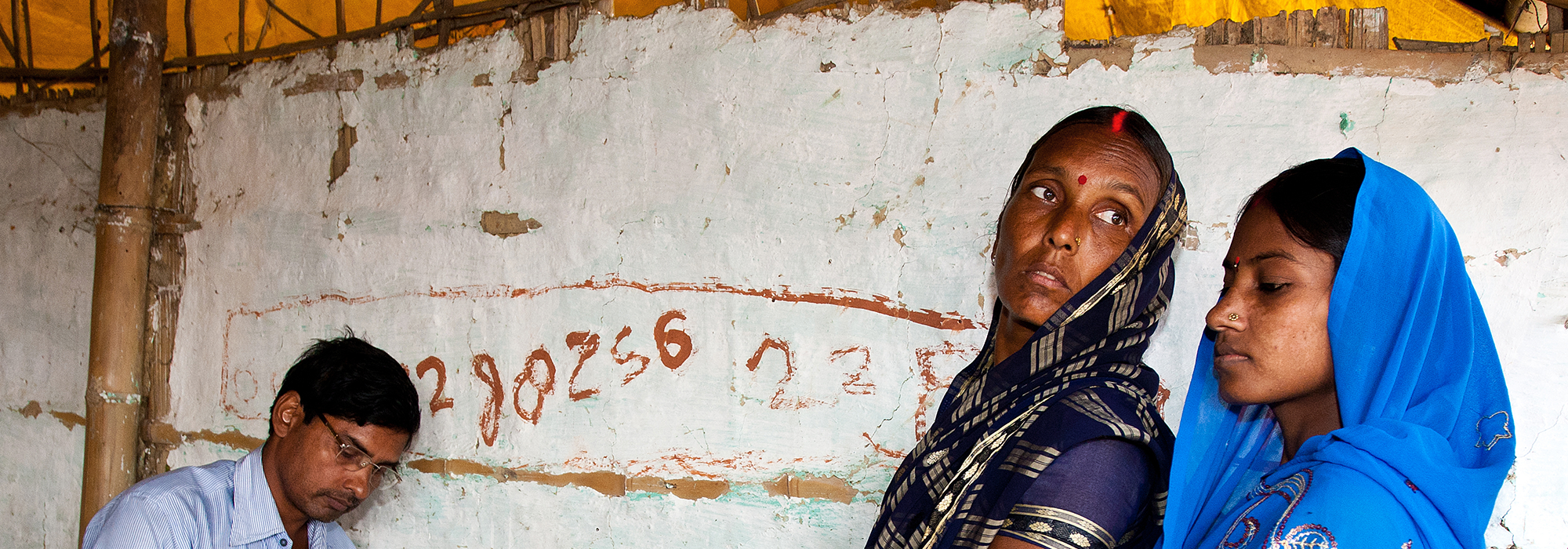
The government of Canada recently participated in the G7 health ministers meeting in Japan to discuss concrete actions to improve global health. Improving childbirth outcomes was a critical concern.
According to the World Health Organization, every day approximately 830 mothers around the world die because of pregnancy and childbirth complications. The vast majority of these deaths occur in sub-Saharan African countries and other low- and middle-income countries. What makes this alarming figure even more tragic is that most of these deaths are preventable when women have access to quality health care services.
So what can be done to reduce the gap in maternal mortality and improve maternal health around the world? Plenty. And Canada has a large role to play.
Steps have already been taken to identify the problem.
In 2000, the United Nations and more than 23 international organizations and countries, including Canada, adopted the Millennium Development Goals. The goals address major humanitarian challenges such as reducing extreme poverty, child mortality and improving gender equality. The fifth goal emphasizes maternal health by improving access to health care services for pregnant women.
In 2010, Canada also spearheaded the Muskoka Initiative. G8 countries invested $7.3 billion and worked together to reduce maternal, neonatal and child mortalities globally. Canada invested $1.1 billion in the initiative to support low-income nations in their efforts to improve the health of mothers, newborns and children. Canada also committed to 20 projects on the ground, in which Canadian researchers worked with African researchers and policy-makers to improve access and quality of care for expecting mothers and babies.
Eliminate disrespect and abuse at health care facilities
Many important policies addressing maternal mortality focus solely on the lack of available care – too few care facilities or health care practitioners, for example, or lack of access to these facilities. But researchers have also found that improving the quality of care is essential for improving maternal outcomes.
Canada could help make a critical difference in maternal health if we worked with other nations and nonprofit organizations to eliminate disrespect and abuse experienced by women at health care facilities.
In an analysis of the barriers preventing expecting mothers from seeking care at medical facilities in low- and middle-income countries, researchers found that care in hospitals and health care facilities were often associated with physical and verbal abuse, nonconsensual care, discrimination, neglectful care, lack of privacy and even detention against patients’ will.
These kinds of practices in health care facilities can significantly impede the effectiveness of interventions aimed at improving maternal outcomes.
The study found hospital facilities were perceived to be providing too many invasive interventions such as unnecessary vaginal examinations; that they were insensitive to privacy issues; and that they took away women’s control over the birthing process.
Many complained of a lack of supportive attendants during a hospital delivery, some experienced long delays for care, and some had a fear of cutting (from episiotomy or caesarean section). Some women described health care providers as being verbally abusive, lacking compassion or even physically abusive during delivery. Other expecting mothers feared compulsory HIV testing or HIV-status disclosure. And some feared stigmatization because of their unmarried status.
Policies that address mistreatment, neglect and abuse in health care facilities, and protect the rights of women, could help dispel such distrust and avoidance of health care facilities, and improve maternal outcomes in the process.
Around the world there are global civil and professional movements to promote childbirth based on respect and dignity, such as the White Ribbon Alliance. The alliance convenes individuals, NGOs, professional associations, government entities, youth, community leaders, academics and donor agencies that have a common interest in defending the right to a safe birth for every woman.
As part of Canada’s role as global citizens committed to improving child and maternal outcomes around the world, we should direct our policies, training and funding toward tackling disrespect and abuse at health care facilities in low- and middle-income countries.
We could do this by initiating more interventions that aim to reduce disrespect and abuse in health care facilities, insist on more sensitization training for global health care students and NGO workers, and generate awareness of the issue among policy-makers and health care professionals working in the field. More research on evidence-based policies addressing disrespect and abuse will also be important in improving maternal outcomes.
In other words, Canada should be more actively involved in networks that promote a childbirth based on respect and dignity – and save lives in the process.
Of course, in doing this, Canada should work with local practitioners, researchers and policy-makers to make sure the work is based on the best evidence and is culturally appropriate, so we don’t replicate the colonial mistakes of the past. And the work on disrespect and abuse should be an integral part of our broader commitment to addressing other barriers to care, such as access to health care services, lack of transportation, and lack of information.
Justin Trudeau’s government has said that it wants Canada to take a leadership role in global health, including infant and maternal mortality. Addressing maternal barriers to health care – including eliminating disrespect and abuse from health facilities – is a good place to start.
Photo: Travel Stock / Shutterstock.com
This article is part of the International Assistance special feature.
Do you have something to say about the article you just read? Be part of the Policy Options discussion, and send in your own submission. Here is a link on how to do it. | Souhaitez-vous réagir à cet article ? Joignez-vous aux débats d’Options politiques et soumettez-nous votre texte en suivant ces directives.







